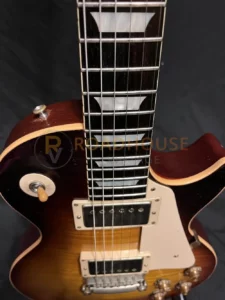If you’re a music enthusiast with a love for the classics, there’s nothing quite like the allure of vintage guitars. Whether it’s the timeless design, the rich history, or the iconic sounds, vintage guitars hold a special place in the hearts of collectors and musicians alike. If you’re considering joining the world of vintage guitar collecting, here are some tips to help you build and maintain a valuable collection.
Understanding Vintage Guitars
Vintage guitars are typically defined as instruments that are over 30 years old and possess historical significance, collectibility, or desirable characteristics such as rare features or iconic design. It’s essential to understand what makes a guitar “vintage” and why they are sought after by collectors around the world. Additionally, it’s crucial to differentiate between vintage and antique guitars, as they may have different characteristics and values.
Getting Started with Vintage Guitar Collecting
If you’re new to vintage guitar collecting, it’s essential to start slowly and build your collection over time. Set realistic expectations and budget accordingly, as vintage guitars can vary widely in price depending on factors such as brand, model, condition, and rarity. Start by researching different brands, models, and eras to determine what interests you most and aligns with your budget and preferences.
Researching Vintage Guitars
Before making any purchases, it’s crucial to conduct thorough research on the specific guitars you’re interested in. Utilize resources such as books, online forums, and reputable websites to learn about different brands, models, and serial numbers. Take note of key features, specifications, and historical significance, as this information will help you make informed decisions when buying vintage instruments.
Identifying Authenticity and Value
When buying vintage guitars, it’s essential to verify their authenticity and assess their value accurately. Look for key indicators such as original parts, serial numbers, and any signs of modifications or repairs. Be wary of counterfeit guitars and do your due diligence to ensure that you’re purchasing a genuine vintage instrument. Additionally, consult with experts or appraisers to get an accurate assessment of the guitar’s value before making a purchase.
Building a Diverse Collection
A diverse collection adds depth and interest to your vintage guitar collection. Explore different brands, models, and eras to create a well-rounded selection that reflects your tastes and interests. Consider collecting guitars from different decades or focusing on specific genres or styles. By diversifying your collection, you’ll not only enhance its aesthetic appeal but also increase its potential value over time.
Maintaining Your Vintage Guitars
Proper maintenance is essential for preserving the condition and value of your vintage guitars. Store them in a controlled environment away from extreme temperatures, humidity, and direct sunlight. Regularly clean and inspect your guitars for any signs of damage or wear, and address any issues promptly to prevent further deterioration. Investing in high-quality cases and humidifiers can also help protect your instruments from damage.
Networking and Community Involvement
Joining vintage guitar clubs and online communities is a great way to connect with fellow collectors and enthusiasts. Share your passion for vintage guitars, exchange tips and advice, and learn from others’ experiences. Networking with other collectors can also help you discover new sources for purchasing vintage instruments and stay informed about upcoming events, auctions, and exhibitions.
Investing in Vintage Guitars
While vintage guitars can be a rewarding investment, it’s essential to approach collecting with caution and consideration. Consider factors such as market trends, rarity, condition, and historical significance when evaluating potential purchases. Keep in mind that while vintage guitars can appreciate in value over time, they also require ongoing maintenance and care to preserve their condition and maximize their potential returns.
Enjoying Your Collection
Above all, collecting vintage guitars should be a source of joy and inspiration. Take the time to appreciate the craftsmanship, history, and unique character of each instrument in your collection. Play them regularly and explore their sonic capabilities, whether you’re a seasoned musician or a hobbyist enthusiast. Remember that the true value of a vintage guitar lies not just in its monetary worth but in the joy it brings to the owner and the stories it carries from the past.
So…is it all worth it?
Vintage guitar collecting is a rewarding and enriching hobby that allows enthusiasts to connect with musical history and culture. By following these tips for building and maintaining a valuable collection, you can embark on a journey filled with discovery, excitement, and passion. Whether you’re a seasoned collector or just starting, there’s never been a better time to explore the world of vintage guitars and create your own legacy in music history.
FAQs
Vintage guitars are typically over 30 years old and possess historical significance or collectability. Look for indicators such as original parts, serial numbers, and signs of age or wear.
While vintage guitars can appreciate in value over time, they also require ongoing maintenance and care. Consider factors such as market trends, rarity, and condition when evaluating potential investments
Proper maintenance is essential for preserving the condition and value of vintage guitars. Store them in a controlled environment, regularly clean and inspect them, and address any issues promptly.
Reputable dealers, auction houses, and online marketplaces are good sources for purchasing vintage guitars. Research the seller’s reputation and verify the authenticity of the instrument before making a purchase.
Conduct thorough research and consult with experts or appraisers to get an accurate assessment of the guitar’s value. Compare prices from multiple sources and trust your instincts when negotiating with sellers.








